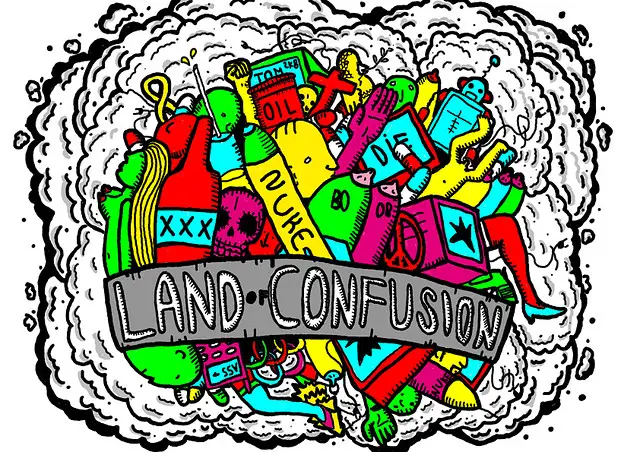If you have ever been plagued by writer’s block, you know how painful the blank page or screen can be. While you may be concerned that the inability to get anything down is a sign of writer burnout, the two conditions are not the same thing.
Writer burnout happens when someone runs out of gas, physically and emotionally. It’s based on lack and can almost be a precursor to depression. Someone who is burned out has short-circuited in a way, and everything they try to do at work is an effort.
What is Writer’s Block?
The Free Dictionary defines writer’s block as “(A) usually temporary psychological inability to begin or continue work on a piece of writing.” That explanation sounds quite sterile, but for people who are stuck in the middle of a block, it’s hard to imagine that there will ever be a time when the creative juices will ever start flowing again.
The first reaction someone may have when faced with this situation is to panic. Mark Twain said probably said it best when he remarked, “The secret of getting ahead is getting started. The secret of getting started is breaking your complex overwhelming tasks into small manageable tasks, and then starting on the first one.” Remember that this block will not last forever. It will pass and if you want to get it to move on a bit faster, there are some strategies you can use to get it unstuck.
Strategies for Dealing with Writer’s Block When …
Can’t Get Started on an Article or a Project
Stop and take a breath to figure out why you are stumped. If you are having “new client jitters” because you want to make a good impression, that’s not quite the same thing as writer’s block, although this type of anxiety can make your mind shut down so that you can’t get started.
If your main concern is that you won’t do well on a new gig, go through your instructions or guidelines again and make sure that you understand everything correctly. Contact the client to ask questions if you aren’t sure about something. The answers you get may be enough to help you in this instance.
If you are experiencing true writer’s block because you can’t come up with an idea, there are a number of strategies that you can try.
- Some people find using a writing exercise helpful and that by writing a story (any story), it helps to get unstuck.
- In a situation where you need to find a hook for an article, it may help to look at news items connected to your topic to get an angle that you can work with.
- Get a piece of paper and start brainstorming words for 5-10 minutes and then see if any of them give you inspiration to start writing.
- Set a goal to write a certain number of words (300-500) and don’t stop until you are done. It doesn’t matter at this point whether what you write is good quality work or complete garbage; you can always edit it later on. Your goal at this point is to push through the block and get something down.
There are Too Many Ideas and You Can’t Choose One
This is a different type of block where you are having trouble focusing on your project. At a time like this, stepping away from your desk for a time may help you get some perspective and some clarity on which way you should proceed with your writing.
Go for a walk, get something to eat or drink, take a shower, read for a few minutes, take a nap, listen to some music, watch a television show, go for a drive, call a friend, but do something completely unrelated to your work. When you come back to it, you’ll have a different perspective. It will be easier for you to evaluate the ideas that are in front of you.
The solution may be to incorporate several ideas into your work by writing several articles or blog posts or putting some of the ideas aside for future projects that you can pitch to a client later on. You may also decide to eliminate some of them from your list once you have given yourself some time to reflect.

More Tips for Dealing with Writer’s Block
If you are concerned that writer’s block may rear its’ ugly head in the future, here are some tips to head it off at the pass:
- Set aside time to write every day. You can have a daily word count goal or a certain amount of time that you will spend writing, but be faithful to it. Work your writer’s brain like a muscle that you want to strengthen.
- Don’t insist that your work be perfect the first time through. As long as you get somewhere close to the target, it’s going to be good enough in this instance. You can always make revisions later on. If trying to find the precise word or idea is holding you back, then let it go in favor of being somewhere in the same zip code for the time being.
- Take inspiration where it comes. Jot down your ideas when they come to you. Keep a notebook with you for this purpose. Start a swipe file with links to interesting websites that you can draw on for future work. Use pictures from magazines, flow charts, mind maps, whatever it takes to keep your ideas on track.
- Decide to stop when you find a perfectly reasonable idea and go with it instead of trying to find something better. The idea is to avoid getting blocked, so find something you can work with and keep moving forward, knowing that you can always edit and polish your work later on. If you don’t have something down, you don’t have anything you can improve on, which means you will stay blocked.
Would you like to check out some more online resources about writer’s block? Here are some online resources to help you out:
7 Ways to Overcome Writer’s Block
5 Ways to Overcome Writer’s Block on a Deadline
Quick and Dirty Tips for Overcoming Writer’s Block
How to Overcome Writer’s Block Once and for All: My Surprising Solution
photo credit: CarbonNYC via photopin cc
photo credit: tommy the pariah[away] via photopin cc


Leave a Reply